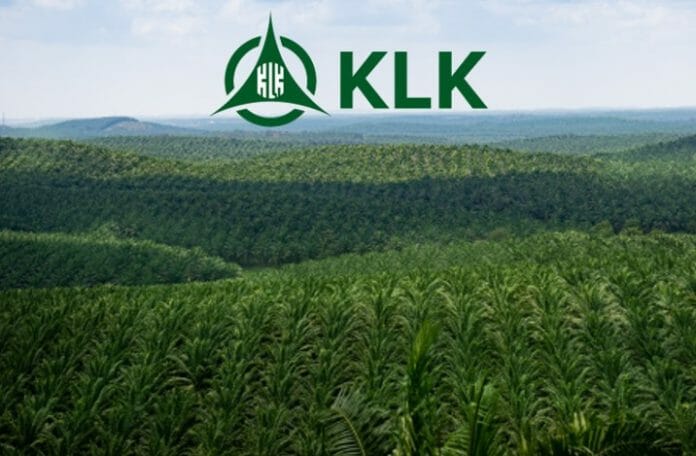Kuala Lumpur Kepong Bhd’s (KLK) purchase of two plantation assets should be marginally accretive and makes strategic sense, according to Kenanga Research.
“KLK already manages these estates which are near to its own estates. We are nudging up our FY24-25F forecasts marginally, by less than 1%. Given its good track record, defensive balance sheet and expansionary mode, KLK remains our sector pick.” it said in its Company Update today (Dec 15).
It maintains its OUTPERFORM call along with TP of RM24.50 which is based on 16x FY24F PER and a 5% premium for its 4-star ESG rating.
The risks to its call include weather impact on edible oil supply, unfavourable commodity prices, and production cost inflation.
Kenanga noted that KLK Buying two estates from parent, Batu Kawan Berhad (BKB), in which it has entered into a conditional agreement with Whitmore Holdings Sdn Bhd (WHSB) to buy two estates for RM277 million in cash.
“BKB holds 48% of KLK and 100% of WHSB. The two WHSB estates are located at Berau, East Kalimantan and are held by two subsidiaries, 92% PT Satu Sembilan Delapan (SSD) has planted 5,384 hectares out of the 5,676 hectares of land it owns.
“The palm trees are in their prime, at 9-16 years of age,” it said.
SSD is RSPO certified and operates a 60MT per hour palm oil mill as well with a bio-gas capture facility due for completion in FY25. Knight Frank has valued SSD’s land bank at RM312 million based on RM58,000 per hectare of planted area.
Meanwhile, 90% PT Tekukur Indah (TI) owns 1,497 hectares of land, 987 hectares of which has been planted. All the trees are 1-2 years old, hence still immature and loss making but most of the upfront investment capex has been incurred.
Hence, its land bank is valued at RM44 million by Knight Frank based on RM45,000 per hectare of planted area, Kenanga said.
The research said the acquisitions are Neutral on estimated price earnings ratio (PER) but discount on revalued price to book value (PBV).
“KLK will be paying RM277 million altogether for both assets. Compared to our estimated 12-month PATMI for SSD and TI combined of RM19 million, the acquisition PER of 14.5x is comparable to KLK’s 14.5x FY24F PER.
“However, after adjusting out the 8% minority in SSD and 10% in TI, the estimated revalued PBV based on Knight Frank’s valuation of the two assets of RM328 million (after deduction minorities) less RM92 million of debts is about 1.2x. versus KLK’s 1.5x PBV.
“Earnings-wise, KLK is set to enjoy a slight uplift, less than 1% in core net profit as it plans to use part of its RM2.5 billion cash holding to pay for the entire consideration,” it added.
The research house reckons the acquisition is more strategic and long term than immediate.
“Firstly, BKB has already engaged KLK to manage these estates, hence KLK is familiar with the estates. KLK also owns 15,000 hectares of oil palm plantations nearby so the acquisitions will just add scale for KLK’s operations in East Kalimantan.
“Lastly, the acquisition removes any potential conflict of interests as KLK’s soon to be completed integrated refinery and oleochemical complex nearby will eventually buy CPO and palm kernel from SSD and TI.” it said.
It added the acquisition brings marginal upgrade to core EPS of 0.3% in FY24F to 147.5 sen and 1% to 165.9 sen for FY25F.









